Let's build a simple app from scratch using Java, Spring, and Angular. Do you feel confident in your ability to design and implement it? Let's find out.
Part 1:
Java and Spring Skill Check
Angular and Typescript Skill Check
Docker Skill Check
Tools Skill Check
Part 2:
Design a Simple System
Back-end Skill Check
Front-end Skill Check
Take a deep dive into Reactive Manifesto and Reactive Principles, exploring concepts, patterns, theories and more about distributed reactive systems.
Part 1:
Reactive Manifesto
Reactive Principles
Part 2:
Reactive Patterns
When designing a system, the focus should be on behaviors and responsibilities rather than components. It is important to understand the relationship between data and action.
Part 1:
Domain Driven Design
- Aggregates
- Bounded Context
- Layered Architacture
- Patterns
Part 2:
Event Driven Architecture
Event Storimng
The objective, differences, and the reason for the birth of RECQ Architectures.
Part 1:
State-of-the-art
- Distributes Systems
- CAP Theorem
- ACID vs BASE
- Micorservices Story, From Monolith to FAAS
Part 2:
State-of-the-art
- Event Sourcing
- CQRS
- Messaging
Other approaches
- Domain Events Approach (DDD)
- Pure EDA
- Actor Model
Take a deep dive into RECQ Architectures and Patterns, and use this knowledge to design software in a new and innovative way, while keeping any potential risks, failures, and advantages in mind for your new system.
Part 1:
RECQ Architecturee
RECQ Patterns
- RECQ System Pattern
- RECQ Communication Patters
Part 2:
RECQ Component Pattern
Design a RECQ System

Learn how to implement a RECQ System in Java using Evento Framework.
Part 1:
Command Model
- Aggregate
- Service
Query Model
- Projector
- Projection
Part 2:
Invoker
Saga
Observer
Explore the Event Store
Build your full featured RECQ Application, applying Front End and Backend Concepts.
Part 1:
Design the RECQ System
Implement the RECQ Back-end
Part 2:
RECQ Frontend
(Bonus) Automatic code Generation
Let's introduce complex scenarios and start dealing with complexity with our new born RECQ System.
Part 1:
Complex Patterns
- External Consistency
- Cross Domain Consistency
- Inconsistency By Design
- Optimistic Writes
- Dealing with the Wait
Part 2:
Deploy and Scale your RECQ System
Analyze and Observe all the Flows
Unlock your future potential
Each lesson is interactive and will be live and fully remote. this number is set to guarantee the correct engagement and to be properly followed.
Each lecture is 8 hours long and split into two parts 4 hours each with a break 15 minutes break every 2 hours and a one-hour break in the middle.
Every Saturday 9:00 – 18:00
You pay the €500,00 (Early adopter discount) €250,00 quota before every single lesson, with a one-week money-back guarantee policy.
If you do not pay for a lecture in time or you use the money-back policy for a lesson you will be removed from the class and you will not be able to join and access material for the next lectures.
Each lecture includes tests and skill checks to evaluate learning, the first three students of each session will get a discount for the next lecture.
(Early adopter discount, available until 2024/06/30)
This quota includes the 8 hours long lecture, all the lecture materials and taxes.
To join the course you need to pass a test that has two objectives: